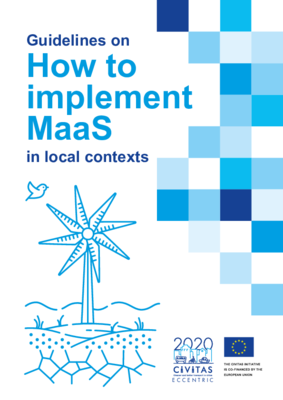ECCENTRIC replication package: Guidelines on how to implement MaaS in local contexts
This document – "Guidelines on how to implement MaaS in local contexts" – summarises the lessons learnt in the CIVITAS ECCENTRIC project during the years 2016–2020. The project was the first to include measures focusing on the concept Mobility as a Service, (MaaS), which in 2016 was still brand new in the world of mobility planning.
The first project publication – "MaaS Readiness Level Indicators for Local Authorities" – was published in Autumn 2017. After that, several cities around Europe started to use the readiness level indicators and found them to be very valuable.
In this publication, you will find the updated version of the readiness level indicators. These indicators have been updated based on several workshops carried out on them during the years 2018‒2020. Thank you to all of the active participants who have provided their know-how on the topic!
It focuses on five different areas related to MaaS :
Chapter 2 on context outlines the principles and circumstances necessary for MaaS to flourish.
Chapter 3 on key pillars focuses on business models and stakeholder involvement.
Chapter 4 on user-centric approach highlights the main points to take into consideration when designing services.
Chapter 5 on MaaS readiness levels introduces the updated readiness level indicators.
Chapter 6 on MaaS readiness levels in ECCENTRIC cities highlights achievements in each city.
ECCENTRIC replication package: Guidelines on how to implement MaaS in local contexts

Publication date:
Languages: English


















